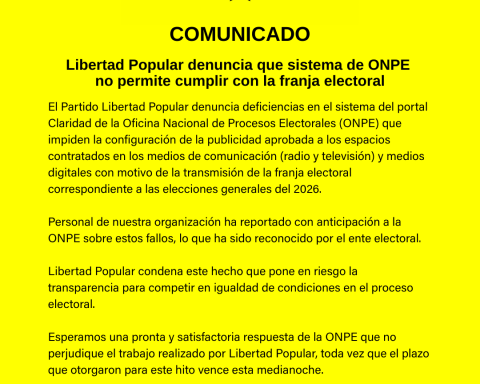If you want to stand out from other job applicants, take into consideration the advice of Harvardthe most prestigious American university in the world, to create a good curriculum vitae (CV).
The university is usually in the Top 10 of the universities with the highest employability index on the planet, according to QS Graduate Employability Rankings, so its recommendations are valuable.
For Harvard, a resume is a concise and informative summary of your skills, education, and experience, which should highlight your strongest skills and abilities and set you apart from other job candidates. Emphasize that, more than getting you the job, a good CV should get you an interview. Take note of the following tips when updating your resume.
The keys to a good CV
Harvard recommends tailoring your resume to the type of position you’re seeking. To do this, it asks you to highlight the information according to the job you want, reflecting your experiences and skills that you think the recruiter is looking for for that position. Here are more tips to update your CV in these times.
- It has to be consistent but easy to read, balancing the white space on the page.
- Underlining, italics, bold, and capital letters can be used to emphasize concepts.
- Headings should be written in order of importance: work experience first, then personal skills (not the other way around).
- Within headings, information should be displayed in reverse chronological order (from most recent). Avoid information gaps like a lost summer.
- Make sure the format converts to PDF correctly.
How should the language be?
The way you write and express yourself on your resume is very important. Harvard asks you to take into account the following:
- Be specific instead of general.
- Active instead of passive.
- Write to express, not to impress.
- Concise instead of “flowery”.
- Based on facts (quantifiable and qualifyable).
- Write to make things easier for people who “scan” the text fast.
Format of a CV without experience
- Personal data: email with name and surname or initials
- Objective and interests: describe what you are looking for in the position you are applying for
- Training: qualifications, study centers and academic merits
- Complementary training: courses, seminars.
- Languages: place the level
- Activities: exchanges, volunteering, etc.
- Competencies: Describe your strengths and soft skills.
- Other data of interest: data such as driver’s license.
Difficult questions to answer in a job interview
They may seem innocent, but their answers are not as simple as they might appear to the naked eye. Before your interview, you should have reviewed possible answers to these six questions.
- Can you tell me about yourself?
- Where do you see yourself in five years?
- What is your greatest weakness?
- Do you check your email on vacation?
- What is your dream job?
- Why do you want to work here?
More questions that can get you in trouble here.
Ten phrases you should never say at work
No matter how talented you are, what you’ve accomplished, or how well-intentioned you are, there are certain phrases that can immediately change the way others perceive you and play against you. More information here.
- “That’s not fair”
- “This is the way it’s always been done”
- “No problem”
- “This will only take five minutes”
- “I’ll try”
- “Fulanito is incompetent”
- “That does not correspond to me”
- “It’s not my fault”
- “I do not can”
- “I’m going to ask a silly question”

















